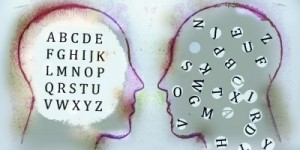DESCRIPTION OF TRAINING CONTENT
Statistics in Europe suggest that at least 15.4% of the school population have a special educational need which is defined thus ‘A child or young person has Special Educational Needs (SEN) if he or she has learning difficulties or disabilities that make it harder for him or her to learn than most other children and young people of about the same age’.
Barriers to learning range from Severe and Complex learning difficulties at the low end of the spectrum to Giftedness at the high end of the spectrum. Between these two extremes will be a range of more specific learning difficulties which include Dyslexia, Dyspraxia (DCD), Dyscalculia, ADD and ADHD; conditions nowadays common in our homes and classrooms.
Many children and young people will have special educational needs of some kind during their education. Early years settings, schools, colleges and other organisations, as well as parents, can help most children and young people overcome their difficulties by increasing their awareness and understanding of the most common difficulties encountered and learning how to identify and support the remediation of these difficulties as early as possible.
This course is aimed at all those professionals and paraprofessionals who wish to gain a greater understanding of the most common specific learning difficulties, how these can be identified, formally diagnosed and ultimately supported in a positive and effective way for all.
Main Aims
- Gain an understanding of Special Educational Needs; specifically Specific Learning Difficulties including Dyslexia, Dyspraxia (DCD), Dyscalculia, ADD and ADHD.
- Appreciate causation and the key characteristics of the various specific learning difficulties listed above
- Learn about processes towards and criteria for diagnosis
- The Pros and Cons – Develop an understanding of learning and living from the perspective of an individual with a special educational need, specifically Dyslexia, Dyspraxia, Dyscalculia and ADD/ADHD.
Why SENI?
According to a report published by the European Commission (EC), Directorate-General for Employment, Social Affairs and Inclusion, a strong
political consensus has emerged in Europe on the importance of inclusive education, and ensuring children with special educational needs (SEN) are included within mainstream education. The report goes on concluding that mutual learning and the sharing of best practice on the provision of support for children with SEN are lacking at the European level. This is complicated by a marked absence of pan-European data on the prevalence of SEN, attributable to varying definitions of SEN between countries and divergent methods of SEN identification. Correspondingly, there is a case to be made for a harmonised classification framework of SEN in Europe. A political consensus has emerged on the importance of inclusive education, reflected by a general trend towards placement of children with SEN in mainstream education, and away from special schooling. Many Member States have made good progress in developing coherent, localised and inclusive early intervention strategies, which provide for consultation with affected families. Information on the support mechanisms available to parents of children with SEN is incomplete, although examples of good practice exist for replication.
Therefore, Identifying Barriers to Learning – A Special Educational Needs (SEN) Masterclass Course is an indispensable course for all those who wish to gain in depth understanding of Special Educational Needs and the processes and criteria for early identification (diagnosis).
Who to attend SENI?
The SENI course is ideal for:
- School principals & directors (primary & secondary)
- Teachers (primary & secondary)
- Teachers working with SEN pupils
- Educational Advisors
- Paraprofessionals
- Phychologists
- Parents
METHODOLOGY OF THE COURSE – ADDED VALUE
The course methodology will ensure the active involvement of the participants in all phases, that is, prior, during and after the delivery of the course.
More specifically, upon confirmation that the course will take place, the participants will receive preparatory material (if need ed), which will cover all important concepts to be presented during the delivery of the course. The participants will have the opportunity to exchange feedback with the organiser of the course, ShipCon, and the trainer as well as to request any clarification related to the content of the course.
The methodology of the training is based on a combination of three important elements:
- Provision of knowledge required (theory)
- Use of training tools, such as case studies, videos, games, animations & exercises (practice – hands on experience)
- Feedback/reflection (review)
During the delivery of the course, the participants will receive hard copy material, which will cover the content to be presented in all five (5) days of the seminar. The material will be presented in a form of Power Point (PPT) presentations, videos & animations. Moreover, the active involvement and hands on experience of the participants will be secured through various training tools, such as case studies, worksheets, scenarios & exercises. These training tools are necessary to ensure that the theoretical knowledge gained by the participants can be used in real life scenarios; an important aspect & added value for any training course.
At the final day of the course, the participants will have the opportunity to reflect on the information received and the experience gained in the specific field of study. Moreover, the participants and their institutions will be encouraged to be members of ShipCon ‘Network of Excellence’, an international hub and forum for entrepreneurs & innovators to exchange ideas, novel concepts/approaches & best practices in the area of environment and education.
BENEFITS TO PARTICIPANTS – SKILLS & COMPETENCES
The course is ideal for school principals, teachers of primary and secondary education, educational advisors (including psychologists) and parents who wish to gain in depth understanding of the most common specific learning difficulties, how these can be identified, formally diagnosed and ultimately supported in a positive and effective way for all.
By the end of the course, delegates will have acquired capabilities to:
- Gain an understanding of Special Educational Needs; specifically Specific Learning Difficulties including Dyslexia, Dyspraxia (DCD), Dyscalculia, ADD and ADHD.
- Appreciate causation and the key characteristics of the various specific learning difficulties
- Learn about processes towards and criteria for early identification (diagnosis)
- Develop an understanding of learning and living from the perspective of an individual with a special educational need, specifically Dyslexia, Dyspraxia, Dyscalculia and ADD/ADHD.
PROGRAMME OF THE TRAINING ACTIVITIES (DAY BY DAY)
Monday – Introduction to Special Educational Needs (SEN)
General Overview of SEN
What is neurodiversity and the philosophy that underpins our training
General overview of SEN
Learning Difficulties (GLD) versus Specific Learning Difficulties (SpLD)
General overview of SEN
Learning Difficulties (GLD) versus Specific Learning Difficulties (SpLD)
Overview of the most common Specific Learning Difficulties
An introduction to The Autism Spectrum
The legal framework surrounding SEN provision
Memory & Cognitive functioning, Auditory & Visual processing
The impact on Psychological, Social and Emotional Development
Tuesday – Dyslexia and an introduction to Dysgraphia
General overview of Dyslexia
History, terminology and definitions
Causation – Neurological basis for Dyslexia
Co-morbidity with other conditions
Identifying signs of Dyslexia
Paths towards Diagnosis
Strategies to support students with Dyslexia
Dyslexia – ‘A Distinct Advantage’
Dysgraphia – what is it and how do we identify it?
Useful strategies to support the development of writing
Wednesday – Dyspraxia and an introduction to Sensory issues
General overview of Dyspraxia / Developmental Co-ordination Disorder
History, terminology and definitions
Causation – neurological bases for Dyspraxia (DCD)
Co-morbidity with other conditions
Stages of childhood motor development and implications
Identifying signs in early years
Towards a diagnosis of Dyspraxia
Strategies to support students with Dyspraxia
Sensory Conditions in SEN – an introduction
Thursday – ADD, ADHD and understanding Behaviour
ADD, ADHD and understanding Behaviour
Terminology and definitions
The development of attention
Causation – Neurological basis for ADD/ADHD
Co-morbidity with other conditions
Implications for academic and social success
Identifying signs and the criteria for diagnosis
Nutrition and medication ADD/ADHD
The strengths and attributes of ADHD
Strategies to support students with ADD and ADHD
Understanding and supporting behaviour issues in ADHD
Friday – Dyscalculia, Diagnosis and developing resilience
The psychology of mathematics
Dyslexia – Impact on mathematics
Dyslexia versus Dyscalculia
Dyscalculia : Causation – neurological basis
Identifying signs
Dyscalculia verses Maths anxiety
Towards a diagnosis of SEN
Developing student’s resilience
Click here for relevant resources on this masterclass course
CERTIFICATIONS AWARDED
- Certificate of attendance & certificate of competence (skills & competences required – Europass CV)
- Europass mobility certificates – to be issued by the applicant’s National Authority (NA)
List of all ShipCon Erasmus+ upcoming confirmed courses here
